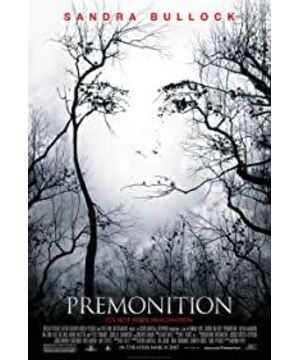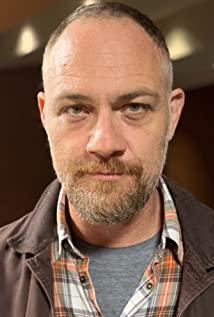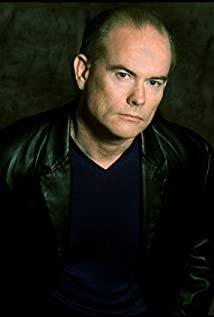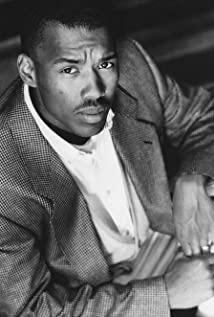I saw this poster a long time ago, the face drawn by the branches, but I haven't looked at it, and I don't know why. Until one day, my friend said that watching the story introduction was very interesting, and the evaluation was average.
Halfway through, I feel like two lines of time and space in a science fiction film, interlacing each other. As a result, it was shocking.
One of the most important features of the film is the non-linear narrative, and the author takes advantage of this feature to disrupt the time, suggesting and misleading the audience into the story trap.
In the first three minutes, Linda woke up from bed. Put stickers on the glass door.
About six minutes, Linda stopped in front of the mirror.
I learned from the phone call with Annie that it was Thursday. smokes. Write a shopping list. Officer Raleigh came to notify her husband of the death. The children played puzzles with their grandmother, and Bridget's face was not bruised. Linda fell asleep on the sofa holding a photo with her husband.
End of the first paragraph. The second paragraph begins.
At sixteen and a half minutes, Linda woke up from the bed. The husband is watching TV. The husband mentioned the regular meeting, Monday. There were no scars on Brigitte's face.
About twenty minutes and fifty seconds, drive away. Met Officer Raleigh, but Raleigh doesn't seem to know her? Does she know Raleigh?
Twenty-two minutes, shopping, wine bottles, Annie asked how she and Jem were doing. Linda was hanging clothes in the courtyard, fell on the crow, touched the blood in one hand, and wiped the blood onto the glass door.
End of the second paragraph. The third paragraph begins.
Twenty-five minutes and a half, I woke up in bed. The mirror is covered. Found the medicine in the pool. There are flower stickers on the glass. It was found that Brigitte's face was scratched, and I don't know why. funeral. Claire was found in the cemetery, but I don't remember talking to her. Called Dr. Ross and found that the page was torn. Taken away by Dr. Ross for treatment. Saturday.
End of the third paragraph. The fourth paragraph begins.
Forty minutes, Tuesday. Wake up from the bed. The husband is taking a shower. Bridget's face was not injured. There is a dead crow in the trash can. Find medicine, call, tear up pages, see doctor. Go to the company to find a husband and see Claire. Throw medicine. Bridget smashed his face. Cover the mirror. Throw the pages of the book in the trash can. Start drawing the form.
End of the fourth paragraph. The fifth paragraph begins.
About fifty-nine minutes and twenty seconds, he woke up from the sofa, holding a photo with her husband. Talk to Claire, talk to Annie. Confirm insurance matters. Looking for a new place, I was mistaken for divorce (Friday?). Arrange funeral matters. Brigitte played jigsaw puzzles with her grandmother again, with scars on her face. Drink alcohol and wear a light blue shirt. Friday.
End of the fifth paragraph. The sixth paragraph begins.
About sixty-eight thirty seconds, she woke up from the bed, and her husband was lying next to him. Sunday. Suggest that the husband accompany the children to play in the park (why?). Go to church for answers, spiritual explanations. The pastor took the bookmarked book and explained to Linda the story of foreseeing the future (Why bookmarked?). When the pastor met, he said that he hadn't seen him for a long time (when did he start?).
In about 74 minutes, I drove to the place where my husband had a car accident, and time and space flashed back. Sunday?
There were no scars on Bridget's face. Linda and her husband chatted about their relationship, and a crow was electrocuted by the electric wire on a thunderstorm night. After the two stared at each other, the relationship crisis was resolved (according to later speculation, the two had sex again). Sunday?
End of the sixth paragraph. The seventh paragraph begins.
Eighty-three minutes and forty seconds or so, I woke up from the bed and tried to stop her husband's tragedy. But on the way to avoid destiny, I ran into destiny. Wednesday.
End of the seventh paragraph. The final chapter.
About ninety minutes and fifty seconds, when he woke up from the bed, Bridget's face was much better. pregnant. Realize the meaning of survival.
It can be seen that in the normal sequence: the sixth paragraph (Sunday), then the second paragraph (Monday), then the fourth paragraph (Tuesday), then the seventh paragraph (Wednesday), then the first paragraph (Thursday), then the fifth paragraph (Friday). The third paragraph (Saturday) continues the final chapter, and the story can basically be connected.
But there is still a contradiction. Why did Brigitte, who scratched her face on Tuesday, play puzzles with her grandmother on Thursday without any scars on her face? The key to solving this is why Linda who woke up Saturday morning didn't know that Brigitte's face was scratched? When her mother asked her why Brigitte's face was injured, Linda thought her mother accused her of scratching Brigitte's face. It is obvious that she was traumatized and lost this part of her memory, or it is more accurate to say that she was mentally deranged.
Confusion, the word is the key to solving the prophecy. When you pass Thursday, you think about what to do on Monday, and wait for the next week, because there is always a loop seven days a week. In other words, there is no prediction at all, and the background of the story is based on an "IF" or "if". After Linda learned of the news of her husband's death, her first thought was probably the thought of every normal person, what would happen if it was at that time. Then her enhanced consciousness was awakened by various similar details in her daily life, seven days a week, which caused confusion between reality and memory. So the day after receiving the news of Jem’s death, she hoped that Jem was fine, so after Thursday, she woke up and Jem was still alive.
The mirror when going upstairs is an obvious hint, Linda's self-confirmation (in addition to the function of overlapping space, the mirror also has a strong spiritual meaning). This proves the overlap and confusion of time in Linda's consciousness.
Is it possible for Linda to get the death prophecy?
The key to answering this question is to determine when Linda gets the prophecy.
If the opening Thursday is a prophecy, and the following Monday is a real space. She got Thursday's prediction on Monday morning. Then the next Saturday should also be a prophecy. She got the prophecy for Saturday on Tuesday morning and started to draw the form. Then I continued painting on Friday. Friday should also belong to the real space, and it can be connected with the prophecy of Saturday, but what happened on Saturday just confirmed Linda’s confusion; taking a step back, if the actual Saturday is incomplete and the prophecy is incomplete Consistent, that confirms the interlacing of prophecy and reality, or the interlacing of Linda's memory and reality.
Moreover, on Tuesday night, the day Bridget smashed her face, she began to realize that she knew what was going to happen during the week, and she began to draw a table. Arguing fiercely with Jem, and then woke up again on Friday morning, with Claire's name on the paper for no apparent reason. It also shows that Linda drew the table more than once, and her memory was confused more than once.
On Sunday, she suggested that her husband and children go to the park to play and ask the priest for an explanation of the prophecy.
If she had dreamed of the next week on Sunday morning. When she went to the pastor, the pastor explained to Linda with a bookmarked book. Does the pastor know in advance what questions Linda wants to ask? The pastor said that he hadn't seen him for a while. Does it mean that Linda hasn't been to church for a long time? So why did she go to the pastor as soon as she got the prophecy? The reasonable explanation is that Linda has rarely been to church since the death of her husband, but she had asked the pastor about the prophecy. But where did she go during this time? Linda was taken away for treatment on Saturday night, and there was not much confession later, but it can be speculated that she should have been cured (otherwise the pregnancy moving at the end would be impossible to talk about, even if the pregnancy is a prophecy), so she did not come for a while Priest. That is to say, she got the prophecy on Sunday, and at the same time asked the pastor for answers on Sunday, and there was a period of time between the two Sundays. But in Linda's consciousness, the two days seemed to be on the same day.
If Linda really got the prophecy on this day, would she suggest that her husband take the children out without trying any blocking behavior? Or have tried to block, but did not succeed? Did she try to stop it in the prophecy, or was it in other time and space? What is the meaning of preventing in the prophecy? If it is in other time and space, what is the significance of the prophecy? The husband and children played in the park on Sunday using upgraded lenses. The rendering of the good times implies that these images may come from Linda’s compensatory psychology.
Linda said to her mother on Friday night, "If I let Jem die, would it be the same as killing him?" Why would she have the idea of letting Jem die? Oh, she confirmed that he had an affair on Friday morning. This implies that she may have predicted Jem's death, and hesitated to stop it. This may be the only fact that directly pointed out Linda's prophecy. If this fact is true, it means that Linda had realized before Wednesday that Jem would have a car accident on Wednesday and knew that Jem had derailed. So when did she get the prophecy? I also assumed that if Sunday or Monday or Tuesday is a reality, it will eventually prove that the heroine's consciousness is confused. In other words, it is impossible for her to get a prediction any day, while keeping her consciousness and pure (not confused by memory) realistic behavior.
The structure of the entire movie is also extremely in line with the logic of confusion. Stimulated by a series of events, the heroine superimposed the events that happened in a few weeks into the day of the week, resulting in an extreme sense of confusion, which fits the character's mood very well (the only imperfect place is that the heroine finally understands The mental activity of the meaning of life is too thin. I personally think that the flashback on the 220 highway can really explain the key point, and it is appropriate to use it here).
Is it possible that the heroine is insane, but at the same time she is prophesied?
Haha, this story is too complicated, and "because of the accidental death of her husband, she learned that her husband had an affair, which led to the "what if" conjecture, and finally understood the meaning of her life and love and started a new life." It's even simpler It is more in line with the logic of the whole story.
The significance of Linda’s verification from the pastor is to relieve Linda’s strong hope: “If I knew before, would I be able to save him?” “I don’t want to save him, this bitch has cheated on it” “No, if If I know, I will save him." "But will I save him?" The
pastor told her that it doesn’t matter whether she can get the prophecy and whether she can change it. The important thing is to understand the most important things in life and work hard. Pursue. Linda cried and replied, "There is nothing worth pursuing." But after imagining that she had the ability to predict, after experiencing depression and hesitation, and imagining that she would save her husband, Linda finally realized that she still has love-the love of her husband and the love of her daughters. So she came out of the mental dilemma and became pregnant, which proved that her husband loves her and also means Linda's new life.
From this point of view, it is extremely unreasonable for the story to ultimately fall on "every day we live may be a miracle". Before that, it was an "IF"-a struggle for love. When you realize where love is, there is "every day we live may be a miracle".
One "IF" solves all problems.
View more about Premonition reviews











